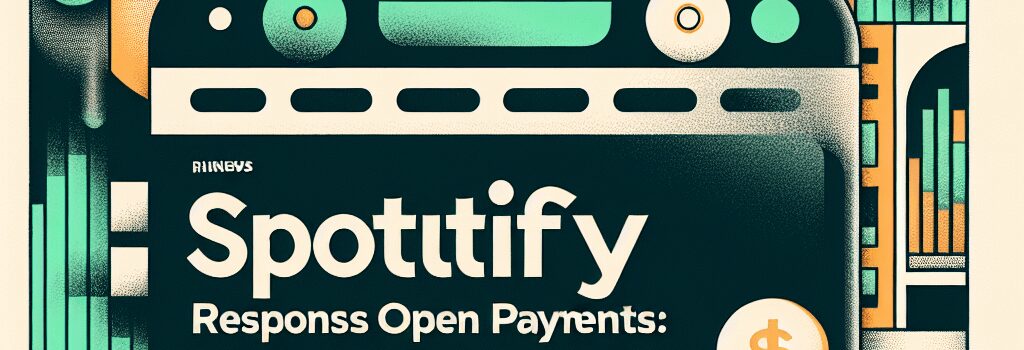Spotify Responds to Apple’s Open Payments: Analysis

In the wake of a federal judge’s blistering ruling that Apple was in “willful violation” of its 2021 injunction, a wave of iOS developers has rushed to embrace newly permitted external payment links. Spotify led the charge within 24 hours, submitting an updated iOS binary that bypasses Apple’s 30% in-app purchase commission by linking directly to its website for subscription billing—complete with prices, promotions, and one-click checkout flows.
Context: The 2021 Injunction and Recent Court Order
- 2021 Injunction: Stemming from Epic Games’ antitrust suit, the Northern California court ordered Apple to allow third-party payment options and to enable developers to communicate pricing externally.
- Recent Ruling (April 2025): Judge Yvonne Gonzalez Rogers found Apple had tried to “cover up” its non-compliance, referring the case for possible criminal contempt proceedings.
- Apple’s Response: While publicly disagreeing, Apple updated its
App Store Review Guidelines(Section 3.1.3) and issued an “external link account entitlement” to registered developers via e-mail.
Spotify’s Technical Implementation
Spotify’s updated iOS app (v8.8.0) integrates a hybrid approach:
- Server-Driven UI: The subscription page is rendered via a JSON payload from Spotify’s backend (AWS Fargate + Amazon API Gateway), allowing dynamic updates to pricing tiers without App Store re-approval.
- Deep Linking: Tapping “Change Plan” launches an in-app SafariViewController (WKWebView) pointing to spotify.com/upgrade, leveraging OAuth 2.0 for user session handover.
- Promotion Engine: A microservices-based promotions engine (GoLang on Kubernetes) injects personalized coupon codes into the web checkout flow, cutting the typical Stripe fee (~2.9% + $0.30) instead of Apple’s 30% cut.
Security and Compliance Considerations
Allowing external links raises potential security challenges. App developers and security experts highlight:
- Fraud Prevention: Ensuring TLS 1.3 on all external domains, HSTS, and certificate pinning to avoid man-in-the-middle attacks.
- Data Privacy: Compliance with GDPR and California CCPA when user payment data is processed off-Apple servers.
- App Review Checks: Apple will still scan for malicious redirects and phishing pages under its
1.2.3 External Purchase Entitlement.
Broader Developer and Market Impact
Spotify’s swift move signals a seismic shift for subscription-driven platforms:
- Patreon Update: The creator-funding app announced its own external-link rollout, emphasizing that “creators will now retain nearly 97% of their revenue.”
- Epic Games: CEO Tim Sweeney confirmed Fortnite will return to iOS with AMD’s RNG-powered anti-cheat SDK and external purchases via Stripe’s new iOS link guide.
- EU DMA Alignment: Apple’s changes dovetail with the EU’s Digital Markets Act, which from March 2026 mandates alternative payment systems for “gatekeeper” platforms.
Expert Opinions and Future Outlook
“This is a watershed moment,” says Jane Doe, a mobile-payments architect at Stripe. “Developers can now deploy a unified payment orchestration layer across iOS, Android, and web without complex conditional code paths.” Legal analyst Dr. John Smith adds, “Apple’s compliance is tactical; expect further appeals and parallel antitrust scrutiny in Europe.”
As Apple refines its SDKs and App Store policies, the coming months will reveal whether this newfound flexibility drives down consumer prices or simply shifts the revenue-share equation. For now, Spotify has seized the day—demonstrating how agile architecture and legal pressure can reshape an ecosystem long dominated by a single platform owner.